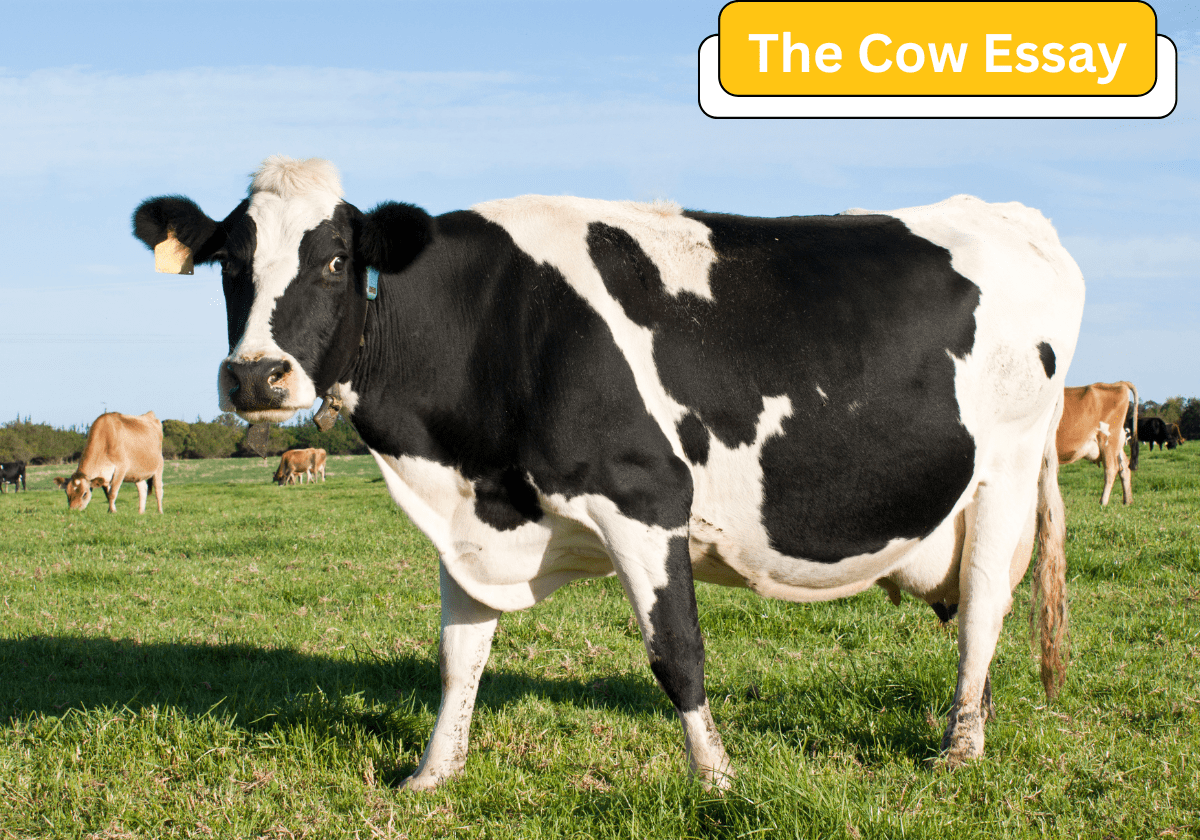Many societies globally, especially in India, regard the cow as a sacred animal due to its significance alongside its utility. Due to the diet of a cow being solely grass, it is considered to be a mammal that can provide the source of milk, which is fundamental for humans. In Hinduism culture, the cow is greatly revered and worshipped as the representation of purity, peace, and wealth.
Physical Characteristics
The holy animal has a stout body with four limbs, long hair at the end of its tail, and a pair of sharp horns on its head. Their skin can be found in different colours such as white, brown, and even black in some cases. Cows have a gentle demeanour and are often considered peaceful animals.
Importance of the Cow
Given the number of advantages that the cow has to offer, it is an integral part of mankind. One of the major benefits that a cow provides is its milk, which is a great source of protein, vitamins, and calcium, which are needed for growth and development. From cow’s milk butter, cheese, yoghurt, ghee, etc. can be made out of it, making it a part of almost every household.
Beyond mere dairy processing, a cow encourages the agricultural sector through its various agriculture participations. Dried cow dung is widely utilized in cooking in rural regions as a fuel source as well as a natural fertilizer to increase soil fertility thus allowing for sustainable farming. Cow urine is known to Ayurveda practitioners for its medicinal value.
Religious and Cultural Context
The Hindu population reveres the cow such as Srimad Bhagavatam where it’s a deity and even uses the name ‘Gau Mata’ which translates to mother cow. The Holy Scriptures never fail to mention cows with God linking them to financial prosperity. Additionally, while Gopashtami is celebrated to worship cows, in Hindu culture and customs taking away a cow’s life is viewed as one of the worst possible things.
Through the works of Mahatma Gandhi, just as other animals are cared for, cows are also held in high esteem as these creatures are strongly associated with the non-violence belief.
Contributions to Economics
In developing countries, especially those that depend on agriculture, the economy would suffer if we entirely extracted cows as farmers would depend on them for milk, ploughing, and even transportation. This would also mean that millions all over the world would lose out on job opportunities since the dairy industry alone plays a significant role in the global economy.
Protection and Conservation
As cows are of utmost importance to society, many cultures are making strides to protect them and stop their mistreatment. For instance, in India, numerous organizations provide services that help with the welfare of cows while also passing laws to protect them. Stray and abandoned cows are provided shelter and care in Gaushalas, the Indian term for cow shelters.
Conclusion
The cow is crucial to mankind as it promotes good health, civilization, and agriculture, therefore highly regarded. Its core values of purity, non-violence, and prosperity reflect heavily on human civilization, which is why the cow is such an important part of it. By maturing appreciating and respecting a cow’s importance, slowly but surely, preserving their dignity will enable a harmonious life for both society and nature.

